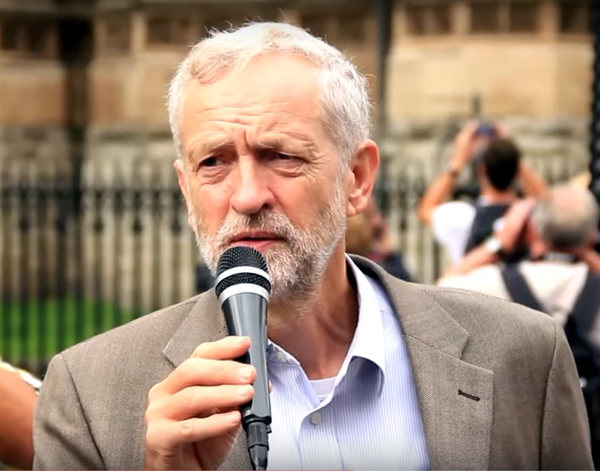May, you live in interesting times
As Brexit day looms closer, the Conservative party remains deep in turmoil on an issue that has not only paralyzed the government, but also the entire country.

In 2015, David Cameron achieved by surprise what no other Conservative leader had accomplished since 1992: he returned to Westminster with a majority of six. The Tories had warned the electorate of a ‘coalition of chaos’ arising around Ed Miliband if voters returned again a hung parliament. Three years later, Labour isn’t in government, but the chaos is very much here.
We all know what happened later. Brexit; a premiership that looked solid but was badly damaged by the supposedly useless Jeremy Corbyn in an ill thought snap election; the deal with the right wing Democratic Unionists to maintain power, and the slow death by a thousand cuts of the May government. We left them last June with the Brexit negotiations in stall, as the Tories were deeply divided on the future relationship they wanted this country to have with the European Union: from the softest of Brexits advocated by backbenchers like Anna Soubry and Dominic Grieve, to a clean cut breakup with everything that ties us to the European institutions, a position championed by the likes of Jacob Rees-Mogg and the remnants of the Monday Club.
Since then, the tribulations inside the Conservative party have been centred around the so-called Chequers plan, which was designed by May as compromise between the two sides presented above, an agreement that the now united Tories could sell to the EU in order to achieve an orderly transition and a negotiated exit. Needless to say, it proved fruitless.
The EU could never accept a deal that curtails one of the freedoms (that of movement) almost completely, while schemingly retaining the other three to variable degrees. Indeed, the heads of government of the EU member countries told May quite bluntly that the plan was unworkable a week ago. On the other side, the hard Brexiteers in Parliament saw the concessions in trade and justice issues as a step too far and refused to stand by the document. The problem for May was that among the Tories that saw the proposed agreement as treason to Brexit voters was her main negotiator with the EU, Secretary of State for Exiting the European Union David Davis, who promptly resigned citing that the UK was yielding ‘too much, too easily’ and stating that he couldn’t defend those proposals in good faith at the negotiating table. Sensing blood in the water, Foreign Secretary Boris Johnson also announced his resignation soon after that of his colleague, sinking the cabinet into disarray.
Johnson has been seeking the top position for years, and his latest tactic in a long history of political zig-zagging is drifting hard to the right to seduce the most extremist wing of the party, in the hopes of toppling May once and for all. Soon after quitting his cabinet position, he caused controversy by weighting into the burqa debate with his characteristic tact by comparing women that wear the clothing to ‘bank robbers’ that look like ‘letter boxes’. He was condemned by May and other senior members of the Conservative party, but it could arguably be said that he did not receive enough criticism from the media. He cunningly disactivated them by offering tea to the reporters that were waiting at his garden for an explanation, while dressed in a carefully crafted casual attire. The row slowly died off as Johnson continues to plot against his party boss.
Nonetheless, Johnson should be wary of other pretenders to the keys of Number 10. This summer several candidates have been rumoured as May’s possible successor. The most talked names have been those of the new Foreign Secretary, Jeremy Hunt, who is known for leading the Department of Health during the austerity driven Cameron years, and Defence Secretary Gavin Williamson, a rising star among the Conservative ranks who has been frequently compared to Frank Underwood, the Machiavellian character played by Kevin Spacey in Netflix’s House of Cards. As the party grandees head to Birmingham for their yearly conference, May’s position looks shakier than ever. In addition to having to fight against a Labour party that has been reinvigorated after its own conference, Chequers is effectively dead, no matter what her loyalists say, and the post conference period is predicted to be a race to the top as the different aspirants scramble to claim the unofficial position of May’s heir presumptive. Indeed, by this time next month we may very well have someone else as the leader of Her Majesty’s Government. These are, indeed, turbulent times for the Tories.





